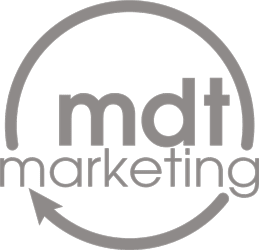what to do with your digital baggage.
You’re moving on to a new agency. The breakup was professional and positive, but there’s still a lot of questions to answer.
Where is our domain parked? Who has access to our Content Management System? Who owns our advertising accounts? Due diligence on your part now extends to the digital baggage, which in this case is your valuable digital assets.
In our last post, we talked about the steps to take when transitioning to a new agency. (If you haven’t read that post check it out by clicking this link: Breaking Up Is Hard To Do – How To Terminate An Agency In A Professional Manner)
We’ve helped clients navigate a smooth transition by getting a clear picture of their obligations to the outgoing agency. As we covered in the previous post it boils down to understanding all the details of your contract and proceeding accordingly. That starts with taking inventory of your digital assets, identifying ownership and access, and the protocol for the transfer. It may seem like a straightforward process that everything should just transfer over, but do you know what all those items are?\
They include:
- Website and landing pages
- Organic Properties– Facebook, Twitter, Google My Business, and other organic platforms.
- Paid Advertising–Google Ads, Facebook Ads, etc.
- Analytics – Google Analytics, Google Search Console, Google Tag Manager, etc.
- Lead database
- Branding and Content –logos, PDFs, videos, and other content.
An inventory is the first step in making a smooth transition with minimal disruption to your marketing efforts. If the termination process goes sideways, it may mean a loss of leads or access to creative or social media visibility. Whether you are changing agencies or in the process of choosing one, here are some critical components that you’ll want to be aware of:
What digital accounts do you own?
Website and landing pages – Both you and your agency should know where the domain is registered, where the website is hosted, and who is responsible for its upkeep. If the website or landing pages go down during the transition, money is being spent, but leads aren’t coming in. That means an opportunity cost for those lost leads, and missing goals which can impact the company.
CMS – Do you have accessibility to your content management system? Do you know who does? This is another area that needs a clear understanding of ownership and maintenance.
Organic Properties–Whether it’s Facebook, Twitter, Google My Business, or other platform, be clear on whether it is an account you own that was managed, or one set up and owned by the agency.
Paid Advertising– Get inventory of accounts such as Google Ads, Facebook Ads, etc.
If they are not technically yours, request a transfer or be granted access immediately.
Analytics – Google Analytics, Google Search Console, Google Tag Manager, etc. Just as important as the advertising accounts, request immediate transfer or access to keep things running smoothly.
Lead database – An agency generating leads on your behalf should transfer that information to you or your incoming agency. One way to keep current on this valuable data is to periodically request an export.
While it’s a rare occurrence, some organizations have lost access or data during the cancellation process. These leads are collected on your behalf, so communicate clearly with the outgoing agency to avoid lost data.
Branding and Content – Don’t overlook your creative inventory – be sure to collect logos, PDFs, videos, and other content.
Who has access to your digital assets?
Some of the points of contact may be internal or at another company, depending on the service or platform used. Identify who the contacts will be during the transition; whether that’s at the agency, internally or contacts at a third party. If a new agency is creating landing pages on behalf of the client, they will need access to point the URL to the new pages.
Navigate to a new agency smoothly.
As with any large undertaking, there may be a hiccup or two, but communication and good planning can help you navigate the transition to a new agency as smoothly as possible.
Remember to consult your agreement for a clear picture of your legal obligations, obtain a complete inventory of your assets, and identify who has access, so your marketing program continues to run with the least amount of interruption.
If you have questions about transitioning to a new agency, MDT Marketing is happy to help you find the answers, contact our team today.
